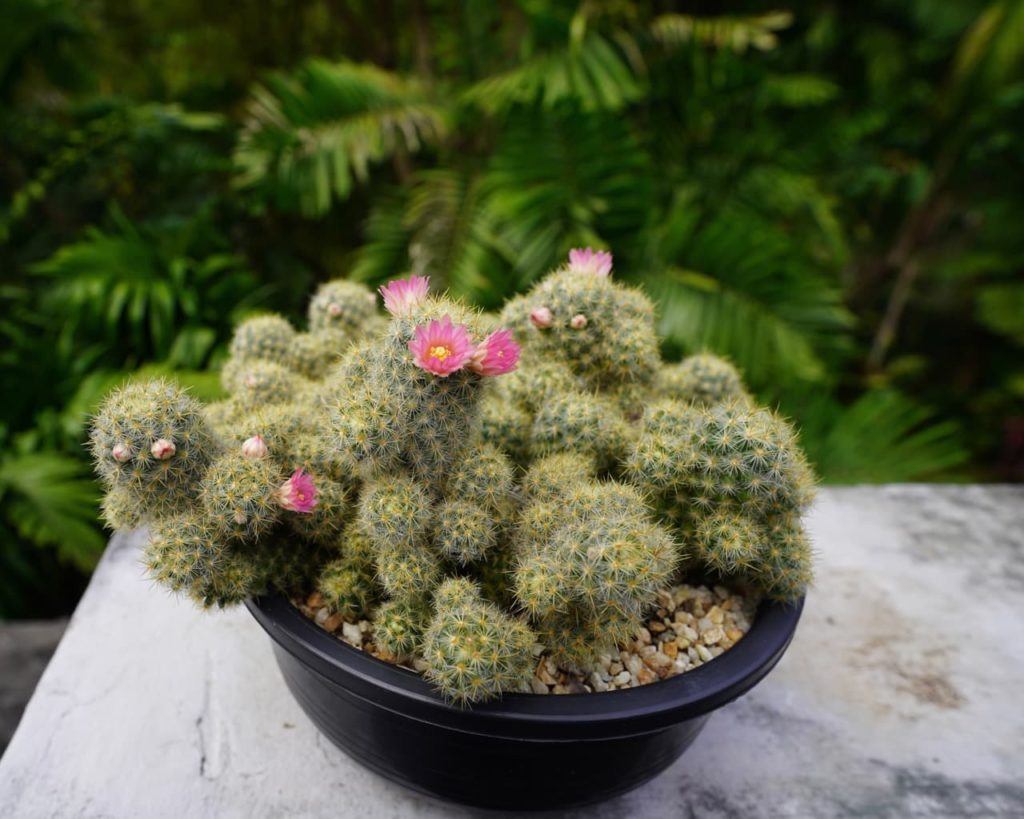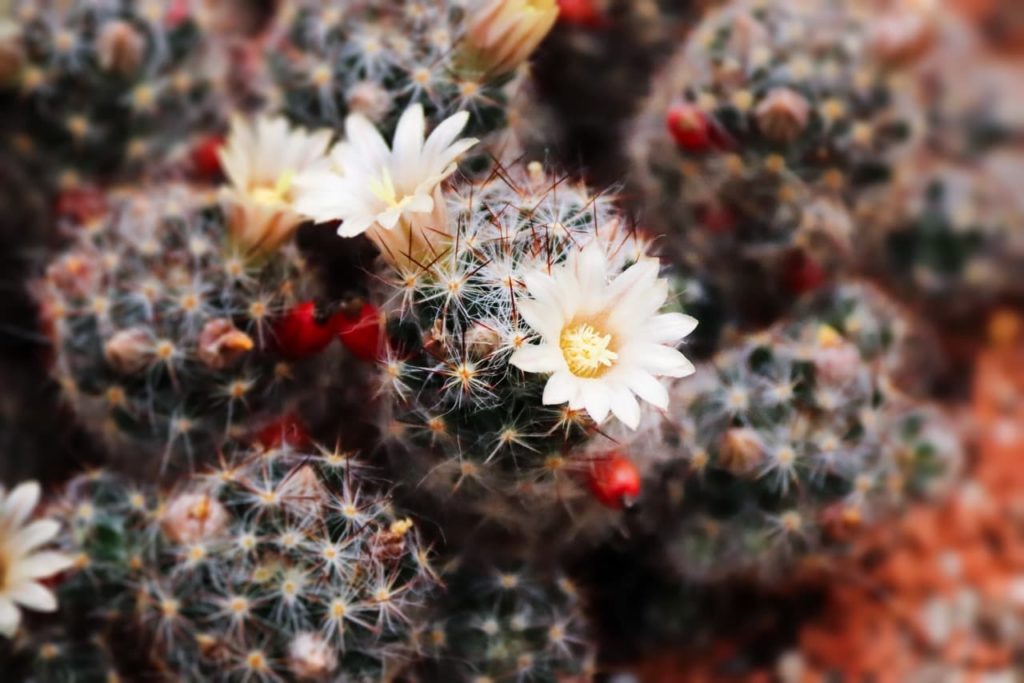cactus > MAMMILLARIA
IN THIS GUIDE
MAMMILLARIA GUIDES

Mammillaria is a sept of cacti , with around 200 mintage and varieties.1Mammillaria ( Pincushion Cactus ) . ( n.d . ) . North Carolina Extension Gardener Plant Toolbox . Retrieved May 4 , 2023 , fromhttps://plants.ces.ncsu.edu/plants/mammillaria/
These are democratic houseplant in temperate climates like the UK , which is far from their native range .
“ My absolute preferent cactus has to be mammillaria , ” shares David Ennals , Owner of Coach House Cacti .

“ The patterns of spination make them very attractive and most forms are low - produce , bunching plant which produce ring of small bloom , normally from April through to May . ”
Overview
PreferredFull sun
ExposureSheltered
Height0.1 – 0.5 thousand

Spread0.1 – 0.5 M
Bloom TimeJune to August
PreferredSand , clay , specific cacti potting mix

MoistureWell - drained
pHAny
This is a big and diverse genus , with species that differ quite a tidy sum in their appearance and feature .

The variation along with what can be highly attractive flowers make a number of these cacti popular with those who delight growing cacti and succulents in their homes .
Many of the Mammillaria cacti are considered to be among the gentle cactus to grow .
However , not all are soft to originate and some within this genus are said to be among the most unmanageable cacti to cultivate .

How To Grow Mammillaria
When it amount to growing Mammillarias , as when growing any other cacti or succulents , the key is to make trusted that you provide the right growing consideration for these works .
These are typically plants that are grown inside the family or in a heated glasshouse , though some are become to outdoor summer cultivation in an field that receives low rainfall .
temperature are a cardinal consideration when think about where pincushion cacti will be able to grow .

These plants be given to be H2 hardy , which means that they can cope with low temperature of 1 - 5 ° cytosine but can not withstand freezing temperatures .
This more often than not have in mind that they must be develop indoors or under cover in most parts of the UK .
“ Ideally , these plants should be preserve between 5 - 10 ° C throughout the winter months as they enter a period of dormancy , ” explains David .

When grown indoors , they need bright , percolate light in an arena with downhearted humidity .
These plants are cacti , so looking at their natural aboriginal habitat gives us all the clues we need to understand the circumstance that they expect when it comes to the growing spiritualist .
Mammillaria demand a cactus pot compost for the best results as this will be formulated to give them the free - drain conditions that they require .

“ I commend not using multipurpose or wet - retentive composts ( high pct peat or coir ) , ” partake in Dan Ori , a Master Horticulturist .
“ I make my own peat - innocent mix , but there are lots of good cacti composts available from garden center and online retailers . ”
Mammillaria Care Guidelines
Mammillaria cacti can be , as mentioned above , some of the easiest cacti to cultivate as houseplant .
However , it is important to understand that some coinage can be much picky and harder to grow .
Most of the clock time , these plants require bright lighting with some filtration to protect the plant from the red-hot Lord’s Day in summer .

It is important to ensure that they get enough Inner Light or sure problems can get down to creep in .
While these cacti are in active growth , they should be watered passably and care should be taken to appropriate redundant water supply to debilitate away freely to fend off excess saturation of the grow sensitive .
“ pee throughout the grow time of year but only after the compost has dry out out , ” David says .

“ Use half - strength tomato fertiliser every 4 waterings . ”
During the winter quiescence period , it is important not to water excessively .
In fact , thesecacti wo n’t require much waterat all over the coldest part of the year and the growing medium should be allow to dry out almost entirely .

“ Keep them ironic during the wintertime in a coolheaded , frost - free elbow room or well - insulated glasshouse , ” add David .
Some Mammillaria can be propagated by seed , which should be sow in in the early natural spring ( March or former April ) .
You will likely need a heated up disseminator , as the seeds require temperatures between 19 - 24 ° ampere-second for successful germination .

A somewhat easy path to propagate new pincushion cacti is by means of beginning .
The offsets bring forth around the al-Qaeda of the cacti can often be discriminate and potted up severally in their own separate container , where they can then expand your collection of cacti and go forward to maturate .
Most of the trouble that arise when growing these cacti are cause by an exit with their environmental weather .

Like many other plants commonly go on indoors as houseplants , Mammillaria can also be attacked by mealybug and other pest .
Mammillaria Varieties
Many Mammillarias are uncommitted to purchase by the family grower .
Some that have been given an Award of Garden Merit by the RHS ( indicating a gamy level of suitability to grow in the UK ) are :
This is by no mean every available option , but these AGM - awarded cactus are among the best options to consider if you would like to raise this plant in your home .

References

